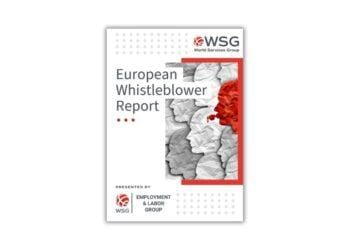Australia’s Position on a Compensation Scheme
Australia’s stance on financial remuneration for whistleblowers could be changing. The nation recently launched a Parliamentary inquiry into the appropriate legal framework for whistleblowers. Currently Australia offers no financial compensation for whistleblowers; supporters feel a “bounty” system is inappropriate, but it could be a profitable business.
with co-authors Diana Chang and Dominique Yong
Amidst global efforts to provide safe paths for whistleblowers to report wrongdoing, Australia has launched a Parliamentary inquiry into the appropriate legal framework for whistleblowers in the public, private and not-for-profit sectors. One of the more controversial issues will be whether there should be financial compensation for reporting. Although whistleblowers in Australia presently receive no financial compensation, last year Australian sources provided the third-largest number of tips to the U.S. Securities and Exchange Commission (SEC), just behind those in Canada and the U.K.
If Australia allows a compensation scheme, there is no doubt it would be used. However, until Australian regulators are successful in advocating for higher penalties and consequent higher potential compensation for whistleblowers, the flow of tips from Australia to the United States is likely to continue given the currently much higher U.S. penalties and greater rewards for whistleblowers.
The U.S. System
The whistleblower reward system has its roots in the United States, where potential whistleblowers may be motivated by sizable awards in return for disclosure. The SEC has the power to award up to 30 percent of the money collected as a reward to whistleblowers who disclose information leading to an enforcement action (where the penalty exceeds US$1 million). Since the programme was established six years ago, it has awarded US$149 million to some 41 whistleblowers. Individuals can also bring claims on behalf of the government under the False Claims Act. These claims allow prosecuting individuals to recover a proportion of any resulting judicial reward, which can be highly lucrative. More than US$500 million was handed out by way of these types of awards in 2016 alone, compared with recoveries of more than US$4.7 million.
The U.K. Position
In the U.K., there are currently no legal provisions which provide for financial incentives to whistleblowers for regulatory enforcement matters. There is also no current indication that the U.K. will adopt a regulatory bounty system. In a Parliamentary report in July 2014, the Financial Conduct Authority and the Prudential Regulation Authority found there was “no empirical evidence to suggest that the U.S. system raises either the number or the quality of whistleblowing disclosures within financial services.”
Australian Position
Despite the flow of whistleblower tips to the United States, views vary as to whether Australia should move in that direction or remain in the U.K. camp. One submission to the inquiry took the stance that a so-called “bounty” system is inappropriate for the public sector given existing codes of conduct and legislation. Another thought that providing an additional incentive to come forward could counter the disincentive many whistleblowers face through retribution and bullying.
Ethical issues arise when considering possible financial remuneration for whistleblowers, particularly those who have participated in wrongdoing. On the one hand, such people should still be encouraged to report the wrongdoing notwithstanding their involvement, particularly because they will likely have the best information. The extent to which culpable whistleblowers could be eligible for financial rewards is up for debate. One approach would be for culpable whistleblowers to benefit from reduced or deferred sentences for their wrongdoing, depending on the usefulness of their reporting, but they would otherwise not receive a financial reward. Alternatively, they could be compensated for the loss of their reasonably expected income in cases where whistleblowing may affect their ability to continue their employment.
Another issue will be the involvement of litigation funders in whistleblowing cases, particularly if Australia introduces a system allowing individual claims similar to the U.S. False Claims Act. One litigation funder, which has already been very successful in the Australian market funding class actions, has recently announced an initiative offering assistance to potential U.S. whistleblowers. The creation of a financial compensation regime in Australia, depending on how it is structured and whether stronger penalties are introduced for white collar crime, could see further developments of this kind and the creation of a whole new market.
Whether Australia makes whistleblowing a profitable business remains to be seen. Current submissions to the Parliamentary inquiry, which closed in February 2017, are divided on this issue. Until the issue is resolved, given the demonstrated willingness of Australians to whistleblow, it appears to be a question of where and how much, not whether or when.



 Wendy L. Wysong is a partner at
Wendy L. Wysong is a partner at 





